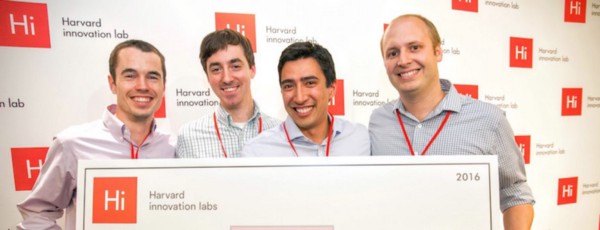By: Brad Diephuis and Andrew Hillis – Herald Health
The last time a survey showed that doctors love medicine because of their EMR (Electronic Medical Record) was … never. And that is probably a good thing. But what is troubling— and for too many doctors — frustrating, is that EMRs are getting in the way of what makes medicine a rewarding career: Patient Care.
Herald Health was built to change that. Our software sits on top of EMRs and delivers doctors the data they need when they need it. We want doctors to spend less time with computers and more time with patients.
Clinicians use Herald to turn the constant pulling for EMR data into a highly customizable push model. Critical notifications about patient data reach them at the right moment and through the right channel — often a pager, an overlooked workhorse of clinical workflow.
Herald recently won the Grand Prize for the HHS Provider User Experience Challenge. The challenge looked for applications that: “positively impact providers’ experience with EMRs by making clinical workflows more intuitive, specific to clinical specialty and actionable.”
We are more than grateful for the recognition and would like to share why the emphasis on provider user experience is so critical to improving patient care:
Doctors face incredible challenges on a daily basis. When a patient presents with a complex, potentially life-threatening condition, clinicians should have the data they need at their fingertips. It shouldn’t require seventeen clicks. It shouldn’t be buried alongside thirty other data points. It shouldn’t require a login. Clunky software and data overload contribute to the worrying rise of burnout in medicine. It shouldn’t.
In our personal lives and across several other industries, software has made life easier and more productive. Why not do that in medicine too? It requires the exact same focus brought by the HHS Provider User Experience Challenge: making computers do things that enhance workflows instead of hinder them. Great software will be built by starting with providers in mind.
We are excited to do that with a team that knows in person the day to day of modern medicine. Through user interviews and data science, we are learning every day from the dedicated clinicians in our pilot at Brigham and Women’s Hospital.
With support from PULSE@MassChallenge and a promising set of new partners, we’re looking forward to continual iteration.
What should we be doing to make data work for providers? Send us your thoughts! contact.us@heraldhealth.com.
Co-Author: Brad Diephuis, Co-Founder and CEO, Herald Health
Co-Author: Andrew Hillis, Co-Founder and Design and Analytics, Herald Health
(Pictured in Photo: Andrew Hillis, Craig Monsen, Matt Fujisawa and Brad Diephuis)

